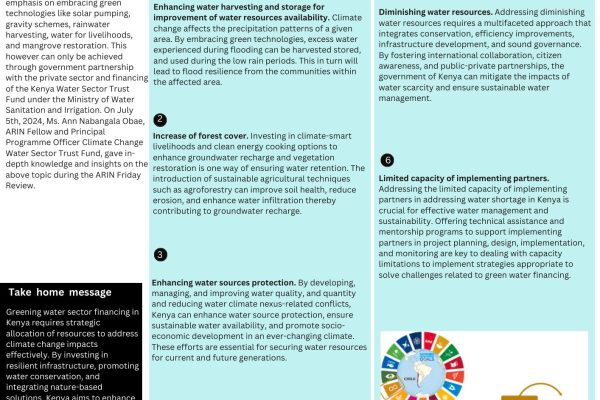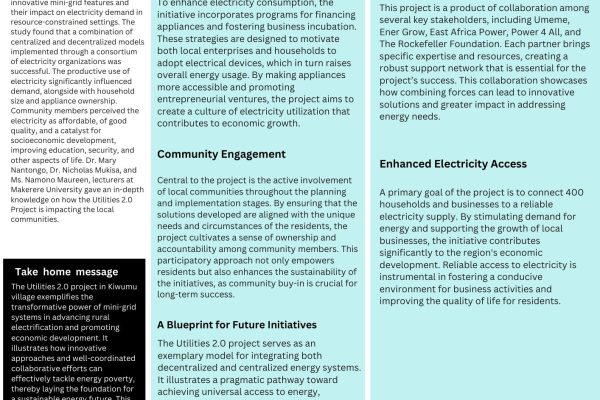Introduction.
Women are the most affected group by the drastic and gradual climate change effects. In this phase of escalating climate change, sustainable small-scale farming approaches can significantly improve the economic standards of women and contribute to enhancing food security. Women smallholder farmers play a crucial role in agriculture, particularly in developing countries, and empowering them with sustainable farming practices can have far-reaching benefits. Dr. Caroline Mulinya, a lecturer at Kaimosi Friends University, during ARIN weekly review, presented on the role smallholder women farmers play in production of Africa Indigenous Vegetables (AIVs) and reuse of greywater.
Key Messages.
African Indigenous Vegetables (AIVs) play a crucial role in enhancing food security through various ways. This includes nutritional diversity, rich source of essential vitamins, minerals, and other nutrients that might be lacking in diets that heavily rely on staple foods. Embracing AIVs diversifies the diet, reducing the risk of malnutrition and related health issues.
Climate resilience: Most AIVs are adapted to local environmental conditions and can withstand drought, poor soil fertility, and other climate-related stresses compared to exotic crops. This resilience helps ensure food availability even during adverse climatic conditions, therefore leading to food security.
African Indigenous Vegetables (AIVs) are suited for cultivation in small land portions, making them suitable for smallholder farmers with limited land spaces. They have a compact growth habit, allowing for high-density planting and efficient use of space. This means that farmers can grow a significant amount of produce in a relatively small area. The ability of AIVs to thrive in small land portions offers significant opportunities for smallholder farmers, especially in regions where land access is constrained.
Greywater refers to wastewater generated from household activities such as bathing, laundry, and dishwashing. Greywater reuse for irrigation of AIVs can contribute to water conservation, reduction in the demand for freshwater resources, and minimal discharge of wastewater into the environment. It also improves soil fertility and enhance crop resilience to drought and desert like conditions and supporting sustainable agricultural practices.
Women utilize Africa indigenous vegetables (AIVs) as a means to generate income. They cultivate AIVs specifically for sale in local markets or to wholesalers, restaurants, and supermarkets. These vegetables, are adapted to local climates and require minimal inputs thus, provide women with opportunities for entrepreneurship and economic empowerment.
Africa indigenous vegetables (AIVs) are often cultivated using traditional farming methods and require minimal capital investments compared to other crops. They are adapted to local climates and soil conditions, reducing the need for expensive inputs such as fertilizers, pesticides, and irrigation. They often thrive with minimal external inputs, making them cost-effective to cultivate.
Conclusion
Embracing greywater reuse can provide a lot of benefits for Kenya, these include water conservation, agricultural development, economic growth, environmental conservation, and improvement of public health. By utilizing the potential of greywater as a valuable resource, Kenya can move towards a more sustainable and resilient water future. On the other hand, sustainable small-scale farming techniques have the ability to transform women’s lives by improving their economic standards, enhancing their food security and nutrition, and empowering them as agents of change in their communities. By investing in sustainable agriculture and supporting women farmers, governments, NGOs, and development organizations can contribute to poverty reduction, gender equality, and sustainable development goals.




